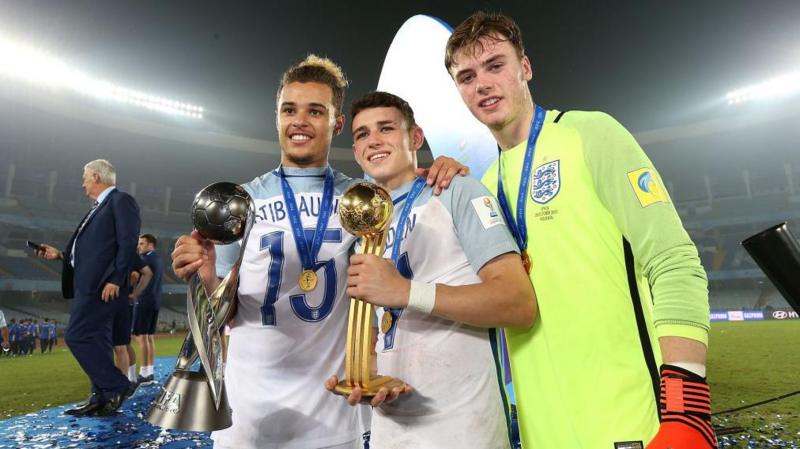U17 World Cup Champ Quits Soccer to Mentor Future Stars



In a surprising turn of events that has left fans and pundits alike scratching their heads, Curtis Anderson, a promising young goalkeeper, has announced his retirement from professional football at the tender age of 24.
Curtis Anderson, once heralded as a key figure in England's triumph at the U17 World Cup in 2017, has chosen to hang up his boots far earlier than most. He was part of a golden generation of English players, standing shoulder-to-shoulder with talents like Phil Foden, Marc Guehi, and Morgan Gibbs-White, who have since found their places among the elites of European football.
The excitement surrounding Curtis Anderson's career began when he showcased his remarkable abilities in the U17 World Cup held in India. Notably, during the nerve-wracking penalty shootout in the last-16 match against Japan, it was Anderson’s crucial save that proved to be a turning point, pushing England forward in a tournament they would eventually dominate. His contributions were pivotal as England claimed their global title, a clear statement of the national team's burgeoning youth prowess.
Post-World Cup, the young goalkeeper's journey saw him making moves across both English and American clubs. He notably signed with Manchester City but then moved on to try his luck in the United States with Charlotte Independence. However, it seemed the promising career trajectory experienced its ups and downs, leading to periods of both activity and inactivity for Anderson.
The decision to retire at such a young age comes off as unexpected but not entirely unique in the sport. Football, while wildly rewarding for some, can also be incredibly demanding and sometimes, the pressures might outweigh the desire to continue. In Curtis's case, details on the exact reasons for his retirement are yet kept under wraps, but it may involve a complex mix of personal decisions, health considerations, and perhaps the challenges of maintaining form and finding the right opportunities.
In reflecting on Anderson's early retirement, it's crucial to discuss the broader implications for athletes in football. The sport is known for its demanding nature, not just physically but mentally. The life of a professional athlete is relentlessly scrutinized and laden with expectations. For goalkeepers, often considered the last line of defense, the pressure is even more acute. Thus, managing mental health and maintaining physical fitness becomes a delicate balance that not all manage to sustain for lengthy careers.
Moreover, the journey of a goalkeeper can be starkly different from that of outfield players. The career longevity for goalkeepers can be significantly more extended, often seeing players remain active well into their late 30s. However, the path to becoming a first-choice starter can be fraught with significant challenges, including intense competition and less rotation compared to other positions.
Curtis Anderson's early retirement serves as a poignant reminder of the harsh realities that can accompany the beautiful game. While his peers like Foden, Guehi, and Gibbs-White thrive at top-tier clubs, Anderson’s departure underscores the individual journeys in professional sports, each marked by unique challenges and personal decisions.
As the football community bids farewell to a young talent, the story of Curtis Anderson will likely echo as a narrative of what could have been and a reminder of the sport's unpredictable nature. His contributions to England's U17 World Cup victory will forever be a testament to his potential and skill.
Whether Anderson chooses to remain connected to the sport in a new capacity or venture into new territories remains to be seen. However, his legacy, though brief, will remain a fascinating chapter in the annals of English football history.